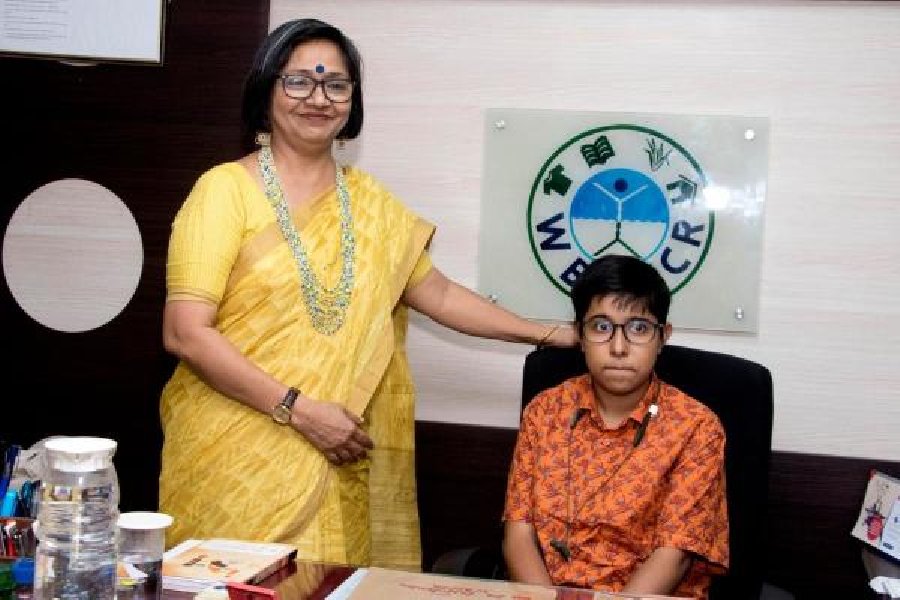Schools should provide flexibility in uniform to transgender persons and the government should provide scholarships to them so they can continue their education in case they are forced to leave their homes, said a 20-year-old undergraduate student of Presidency University.
Shamu Majumdar, a political science student who identifies as transmasculine, was appointed the chairperson of the West Bengal Commission for Protection of Child Rights (WBCPCR) for a day on Tuesday.
Majumdar drafted a charter of demands to be placed before the state’s minister for women and child development and social welfare.
Children who are transgenders are vulnerable to abuse and trafficking and child rights have to be seen “beyond the binaries of male and female,” said Majumdar.
The World Day Against Trafficking in Persons is observed on July 30.
“There has to be more flexibility in school uniforms because when a transmasculine or a transfeminine is expected to conform to the norm it leads to a sense of dysphoria. It stifles the freedom of expression,” said Majumdar.
Majumdar went to a private coeducational school and had to wear a skirt and shirt though he would have preferred shirts and trousers.
“There was no space in school where I could express my sense of discomfort or choice,” he said.
Although Majumdar’s parents were accepting of him, violence, nonacceptance and suppression by family members are not uncommon for transpersons, he said.
“I have seen instances of trans persons facing rejection at home, which is also on some occasions followed by violence. I know of people who have felt claustrophobic at home and were almost forced to leave. If they leave home, they need state support to continue their education and life,” he said.
Tulika Das, the chairperson of the WBCPCR, said that on many occasions transpersons face the first sign of resistance or non-acceptance at home.
She said that the family cannot accept that their son or daughter is “different”.
“While the situation is slightly better for transmasculine until they decide not to get married, the stigma and the trauma is more for transfeminine who do not have the masculine traits or attitude,” said Das.
“They are late teens or young adults who are bullied in school, face rejection at home, move out of their homes and are forced to drop out of school. They then become
vulnerable to abuse and trafficking. The traffickers target such people and know the ways to lure them and take advantage of their stress.”
Das felt programmes like the one held on Tuesday would help raise awareness in people.
“We have to widen the lens of looking at child rights. Child rights are not only about the rights of the male or the female but it goes beyond this gender binary. Simultaneously it should also include children from various ethnic groups and those with disabilities,” said Das.
Majumdar said he has seen a change in the attitude and approach of people around him from what it used to be. “People are more accepting and sensitive than they were five years ago. For example, in college I can express myself and my opinions without being judged,” he said.
“But despite this change, there is still a long way to go and there has to be more policy changes,” he said.











